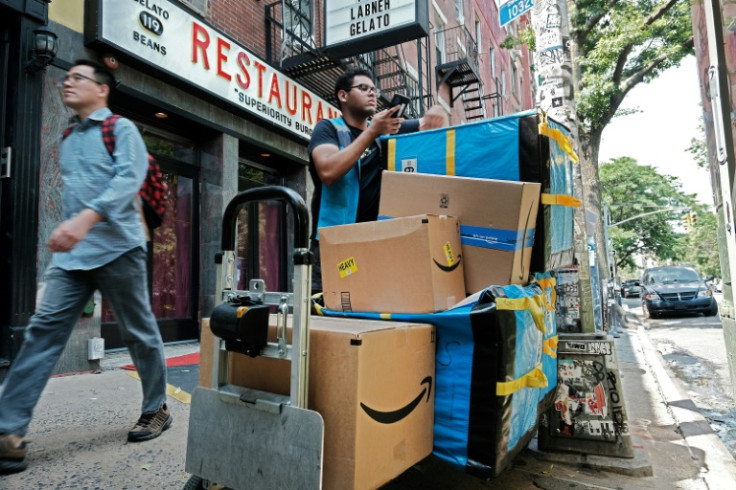
In December 2023, the UK retail sector experienced a notable slowdown in growth, with total sales registering a 1.7 per cent increase, a significant dip from the 6.9 per cent growth observed in the same month of the previous year (2022).
This figure not only fell below the three-month average growth of 2.3 per cent but also trailed behind the 12-month average of 3.6 per cent. Despite this apparent setback, the British Retail Consortium (BRC) found that total retail sales for the entire year of 2023 increased by 3.6 per cent compared to 2022.
The three-month period leading up to December 2023 witnessed a substantial surge in food sales, recording a 6.8 per cent increase on a total basis. However, it is noteworthy that this growth was still below the 12-month average of 8.1 per cent. The BRC highlighted the positive trend, noting that food sales were "in growth year-on-year" for the month of December.
In contrast, non-food sales faced challenges, experiencing a 1.5 per cent decrease on a total basis during the last quarter of 2023. This decline was more pronounced when compared to the 12-month average of -0.1 per cent. In-store non-food sales mirrored this trend, showing a 1.3 per cent decrease since December 2022, falling below the 12-month average of 1.6 per cent.
Online non-food sales, while dipping by 0.8 per cent in December, showed improvement from the -3 per cent recorded in December 2022. The British Retail Consortium highlighted that this decrease was "shallower" compared to the three-month and 12-month declines of 1.7 per cent and 2.8 per cent, respectively.
Interestingly, despite the small decrease in online non-food sales, the proportion of non-food items purchased online in December 2023 increased to 36.8 per cent, up from 36.2 per cent in December 2022. This suggests a persistent trend of consumers preferring online channels for non-food purchases.
Helen Dickinson, CEO of the British Retail Consortium, commented on the challenging retail landscape, emphasising that the Christmas period did not compensate for a year of sluggish retail sales growth.
She attributed the subdued spending to weak consumer confidence, noting that post-Christmas sales failed to entice purchases in categories like furniture and homeware, as households remained cautious about larger expenditures.
Dickinson acknowledged a slight uptick in sales in the week leading up to Christmas, driven by last-minute online gift purchases, particularly in beauty products, toys, and gaming.
Looking ahead, she projected 2024 to be another challenging year for retailers and consumers alike, with high living costs.
and various cost pressures, including the anticipated rise in business rates in April. Dickinson urged political parties to consider these challenges in their manifestos to support the industry's growth, investment and service to customers.
Paul Martin, UK head of retail at KPMG, provided additional insights, noting that the figures for December 2023 were lower than the previous year, despite an improved economic backdrop and consumers having "more money in their pockets" compared to the previous Christmas period.
He anticipated significant downward pressures on demand in the opening months of 2024, suggesting a cautious consumer approach. Martin believed these pressures would ease off by spring if economic conditions continued to improve and confidence slowly returned.
Discount stores, typically perceived as beneficiaries during economic downturns, reported a notable downturn in December 2023. Transactions fell by 12.7 per cent, and spending decreased by 10.2 per cent, indicating that consumers might be cutting back even on the most cost-effective shopping options.
Department stores experienced a mixed outcome, with an increase in the number of transactions, suggesting more foot traffic. However, this did not translate into higher spending, as there was a slight decrease reported in the overall amount spent.
The decline in online non-food sales, while less steep, suggested a shift in consumer habits, aligning with the broader trend of reduced spending power amid rising prices.







